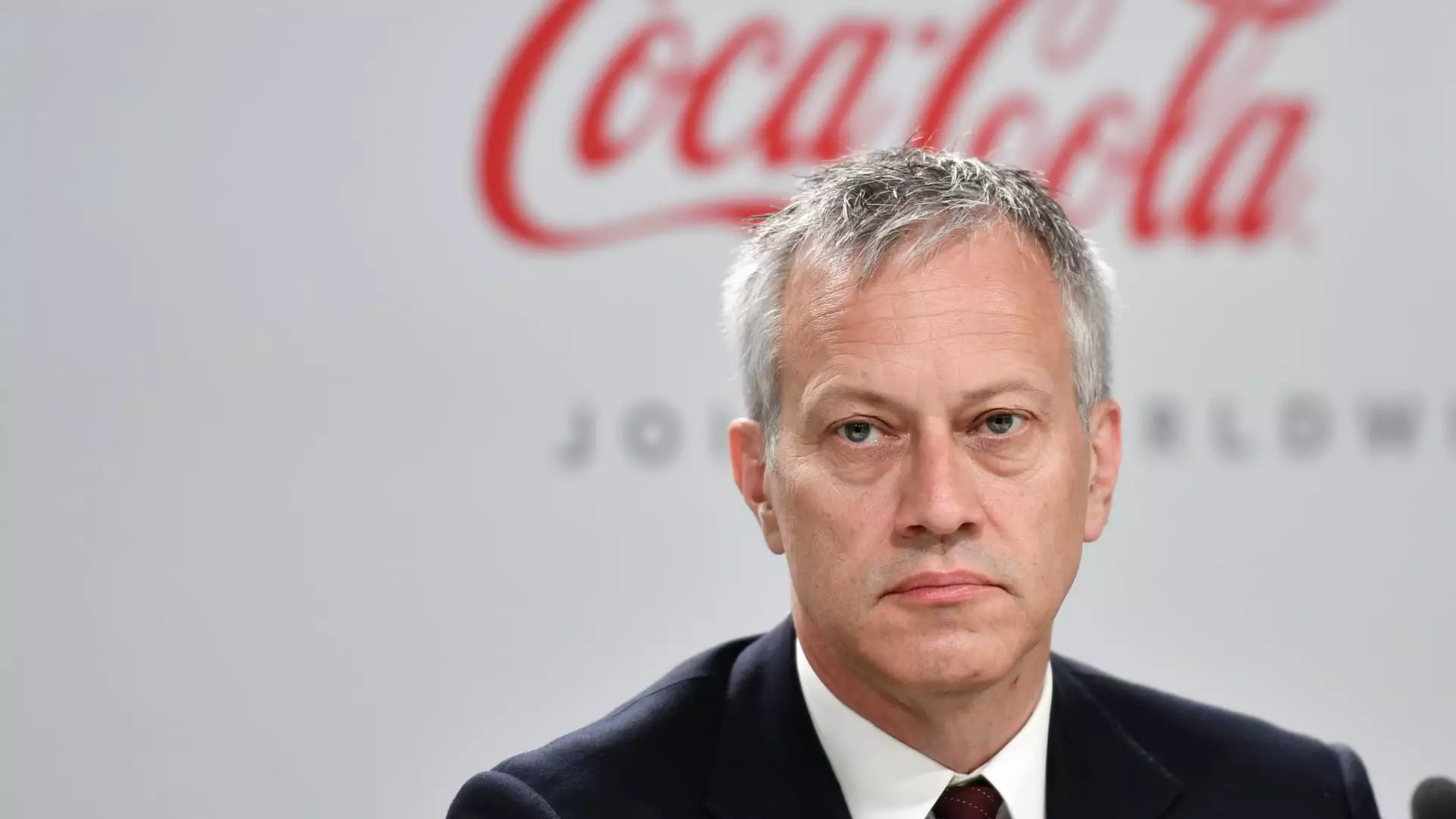In a critical moment where consumer safety and brand reputation are at stake, the recent announcement from the Centers for Disease Control and Prevention (CDC) regarding an E. coli outbreak has raised alarms within the food industry. The outbreak, tracing its origins to McDonald’s popular Quarter Pounder burgers across ten states, comes at a time when both fast-food chains and beverage companies are wrestling with sluggish sales due to declining customer spending trends. Despite the potential ramifications of this health crisis, Coca-Cola’s CEO James Quincey remains notably optimistic, asserting that the outbreak will not significantly impact their sales.
Coca-Cola and McDonald’s have enjoyed a nearly seventy-year partnership that has helped both companies thrive in the competitive food industry. McDonald’s stands as Coca-Cola’s largest restaurant customer, creating a unique interdependence between the two corporations. This relationship has not only included financial arrangements, such as Coca-Cola providing marketing funds for various promotions but also a commitment to customer satisfaction on both fronts. Quincey emphasized this collaboration by stating, “We’re a big partner of McDonald’s, they’re a big partner of ours,” demonstrating the intertwined fate of these two corporate giants.
In light of the outbreak, it is clear that Coca-Cola positions itself as a supportive ally to McDonald’s, indicating readiness to assist in navigating the challenges presented by the ongoing crisis. Quincey’s remarks reflect a broader sentiment that while incidents like this can spark public concerns, the company’s resilience and partnerships will help mitigate adverse effects on sales.
As the pivotal player in the midst of this health scare, McDonald’s has quickly responded to the situation by eliminating Quarter Pounders from their menu in affected areas and taking proactive measures to remove slivered onions—a potential source of contamination—from its inventory. The speed of this response is critical, as it highlights the company’s commitment to consumer safety while attempting to preserve its brand image. Joe Erlinger, McDonald’s USA President, reinforced this notion by assuring the public, “We took swift action yesterday to remove the Quarter Pounder from our menu,” underscoring the importance of transparency and responsiveness in crisis management.
Even though McDonald’s is currently faced with a significant hurdle, the collaboration with Coca-Cola may prove essential in maintaining business momentum. One can anticipate that both companies will work jointly to reconnect with customers through strategic promotions.
The backdrop of the E. coli outbreak poses a dual challenge, not only for McDonald’s but for the broader restaurant industry, which has already been experiencing decreased consumer spending. Both McDonald’s and Coca-Cola have resorted to discount strategies in hopes of luring back customers who are becoming increasingly frugal as economic pressures mount. With the burger chain temporarily pulling a major menu item, there is a risk that consumer visits will dwindle further, potentially impacting Coca-Cola’s sales associated with these outlets.
However, the third-quarter earnings report showed that Coca-Cola managed to surpass Wall Street’s expectations, largely due to its ability to raise prices without losing significant customer loyalty. This sort of pricing power could help offset any transient impact stemming from the outbreak, as the brand has built a strong reputation over decades, making it resilient to such shocks.
While the full extent of the E. coli outbreak’s impact on McDonald’s and Coca-Cola remains uncertain, both companies must navigate a path forward with an emphasis on consumer confidence and safety. Coca-Cola’s firm position on the matter illustrates a strategic foresight to safeguard its interests amidst adversity.
Overall, the relationship between Coca-Cola and McDonald’s serves as a testament to how long-term partnerships can prove advantageous in times of crisis. By prioritizing consumer safety and responding decisively to challenges, both companies can work to mitigate damages and reinforce their market standing. The outcome of this incident could very well redefine how corporations in the food and beverage sector approach collaborative crisis management in the future.


Leave a Reply